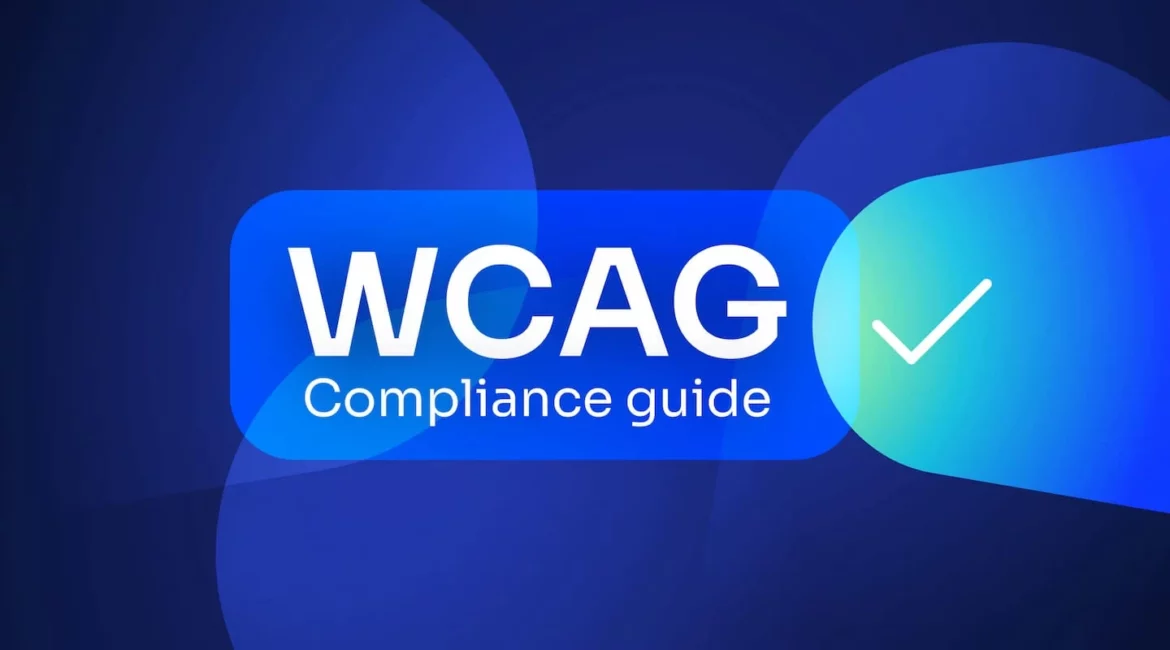In today’s increasingly digital world, having an accessible and user-friendly website is crucial for businesses in all industries, including real estate. One key aspect of creating an inclusive online presence is compliance with the Web Content Accessibility Guidelines (WCAG), a set of recommendations designed to make web content more accessible to people with disabilities. In this blog post, we will explore the importance of WCAG compliance for real estate websites, the benefits of adhering to these guidelines, and how to achieve compliance.
Understanding WCAG and Its Importance in Real Estate
The Web Content Accessibility Guidelines (WCAG) were developed by the World Wide Web Consortium (W3C) to ensure that the internet is accessible to all users, regardless of their abilities. These guidelines provide a framework for creating web content that is accessible to people with various disabilities, including visual, auditory, cognitive, and motor impairments.
For real estate websites, complying with WCAG is particularly important as it enables a broader audience to access and utilize the services offered. By ensuring that your website is accessible to all users, you demonstrate a commitment to inclusivity and equal access. This can help you reach more potential clients, enhance your brand’s image, and ultimately, drive more business.
Benefits of WCAG Compliance for Real Estate Websites
- Improved accessibility: Compliance with WCAG guidelines helps ensure that your website is accessible to users with disabilities who may rely on assistive technologies like screen readers, magnifiers, or speech input. This can help you reach a wider audience and ensure that everyone has the opportunity to access your services.
- Positive brand image: By demonstrating a commitment to inclusivity through WCAG compliance, you can enhance your brand’s image and build trust with clients. A company that values accessibility is more likely to be viewed favorably by potential customers, leading to increased interest and engagement.
- Better SEO: Accessible websites are prioritized by search engines like Google, which means that complying with WCAG guidelines can improve your website’s search engine optimization (SEO) and increase its visibility to potential clients.
- Legal compliance: Many countries and regions have laws and regulations requiring businesses to make their websites accessible to users with disabilities. By adhering to WCAG guidelines, you can avoid potential legal issues and fines.
- Enhanced usability: WCAG compliance typically results in improved usability for all users, not just those with disabilities. A more user-friendly website can lead to increased user satisfaction, higher conversion rates, and ultimately, a more successful online presence.
How to Achieve WCAG Compliance for Your Real Estate Website
Achieving WCAG compliance for your real estate website may seem daunting, but by breaking down the process into manageable steps, you can create a more accessible online experience for all users. Here are some key steps to consider:
- Familiarize yourself with the guidelines: The first step in achieving WCAG compliance is to understand the guidelines themselves. WCAG is divided into three levels (A, AA, and AAA), with Level A being the most basic level of accessibility and Level AAA being the most advanced. For most websites, achieving Level AA compliance is considered sufficient. The guidelines are further divided into four principles: perceivable, operable, understandable, and robust. Each principle contains specific guidelines and success criteria.
- Conduct an accessibility audit: Assess your current website to identify areas where it may not meet WCAG guidelines. This can involve manual testing (such as navigating your site using only a keyboard or testing it with a screen reader) as well as automated testing tools. You may also consider hiring an accessibility consultant to help with this process.
- Implement changes: Based on the findings of your accessibility audit, make the necessary changes to your website to meet WCAG guidelines. This may involve updating your site’s code, design, or content. Some common adjustments include:
- Adding alternative text for images: This allows screen reader users to understand the content and function of images on your site.
- Ensuring proper heading structure: Organizing content using appropriate heading levels (H1, H2, H3, etc.) helps users navigate your site more easily and allows screen readers to understand the content hierarchy.
- Using descriptive link text: Instead of using generic text like “click here,” provide descriptive link text that explains the purpose of the link.
- Providing captions and transcripts for multimedia: Ensure that videos and audio files have captions and transcripts so that users with hearing impairments can access the content.
- Ensuring proper color contrast: Use colors that provide sufficient contrast between text and background to make content more readable for users with visual impairments.
- Making forms accessible: Ensure that form fields are properly labeled and include instructions so that users with disabilities can complete and submit forms without difficulty.
- Regularly monitor and maintain accessibility: Achieving WCAG compliance is not a one-time task. As you add new content and features to your website, ensure that they adhere to accessibility guidelines. Regularly monitor your site for accessibility issues and address them promptly.
- Train your team: Educate your staff about the importance of web accessibility and the steps needed to maintain WCAG compliance. This can help ensure that your website remains accessible as it evolves and grows.
Conclusion
WCAG compliance for real estate websites is essential for ensuring inclusivity and broadening your audience. By adhering to these guidelines, you can create an online experience that is accessible to all users, regardless of their abilities. In doing so, you will not only demonstrate a commitment to equal access but also enhance your brand image, improve SEO, and increase the overall usability of your site. With a focus on accessibility, your real estate website can reach its full potential and provide an exceptional experience for all visitors.




